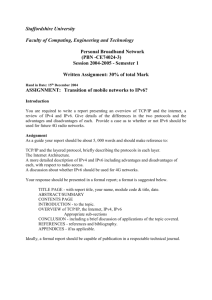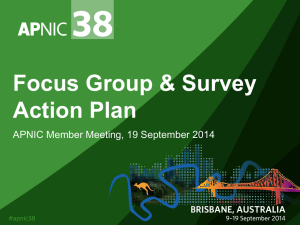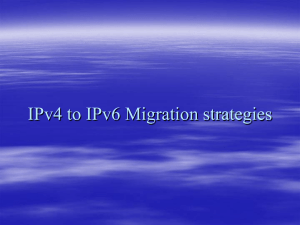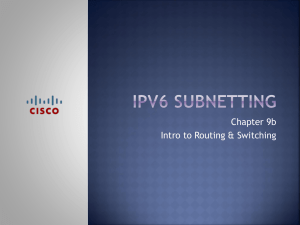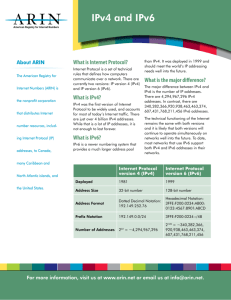Advanced TCP/IP Concepts and Practices is a three
advertisement
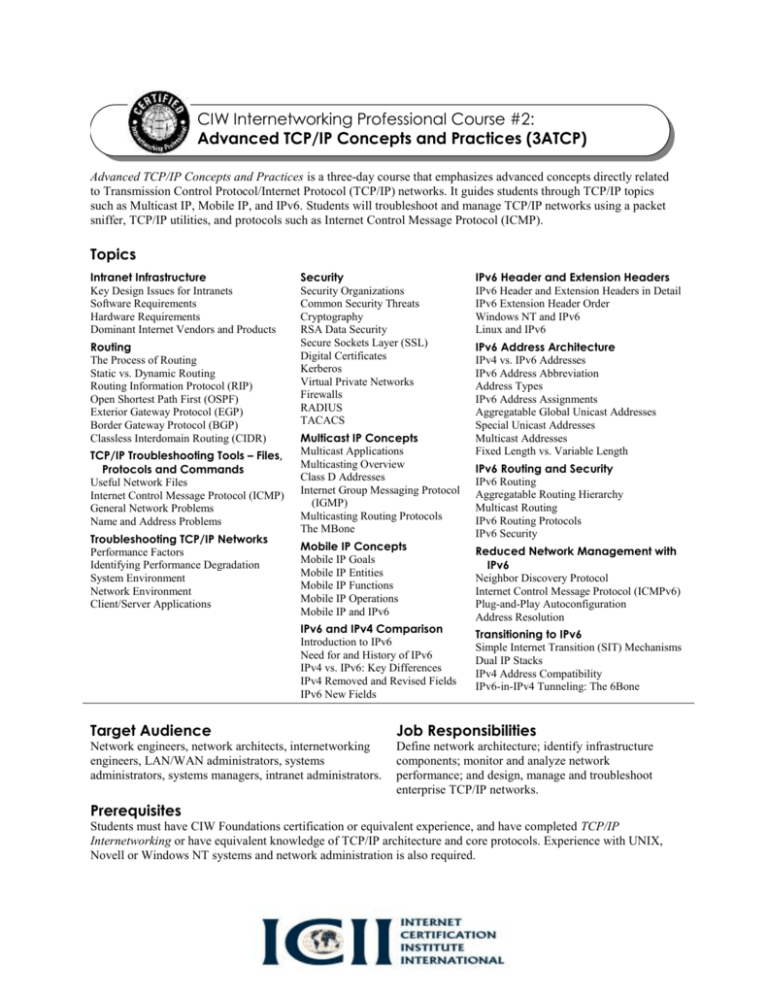
CIW Internetworking Professional Course #2: Advanced TCP/IP Concepts and Practices (3ATCP) Advanced TCP/IP Concepts and Practices is a three-day course that emphasizes advanced concepts directly related to Transmission Control Protocol/Internet Protocol (TCP/IP) networks. It guides students through TCP/IP topics such as Multicast IP, Mobile IP, and IPv6. Students will troubleshoot and manage TCP/IP networks using a packet sniffer, TCP/IP utilities, and protocols such as Internet Control Message Protocol (ICMP). Topics Intranet Infrastructure Key Design Issues for Intranets Software Requirements Hardware Requirements Dominant Internet Vendors and Products Routing The Process of Routing Static vs. Dynamic Routing Routing Information Protocol (RIP) Open Shortest Path First (OSPF) Exterior Gateway Protocol (EGP) Border Gateway Protocol (BGP) Classless Interdomain Routing (CIDR) TCP/IP Troubleshooting Tools – Files, Protocols and Commands Useful Network Files Internet Control Message Protocol (ICMP) General Network Problems Name and Address Problems Troubleshooting TCP/IP Networks Performance Factors Identifying Performance Degradation System Environment Network Environment Client/Server Applications Security Security Organizations Common Security Threats Cryptography RSA Data Security Secure Sockets Layer (SSL) Digital Certificates Kerberos Virtual Private Networks Firewalls RADIUS TACACS Multicast IP Concepts Multicast Applications Multicasting Overview Class D Addresses Internet Group Messaging Protocol (IGMP) Multicasting Routing Protocols The MBone Mobile IP Concepts Mobile IP Goals Mobile IP Entities Mobile IP Functions Mobile IP Operations Mobile IP and IPv6 IPv6 and IPv4 Comparison Introduction to IPv6 Need for and History of IPv6 IPv4 vs. IPv6: Key Differences IPv4 Removed and Revised Fields IPv6 New Fields IPv6 Header and Extension Headers IPv6 Header and Extension Headers in Detail IPv6 Extension Header Order Windows NT and IPv6 Linux and IPv6 IPv6 Address Architecture IPv4 vs. IPv6 Addresses IPv6 Address Abbreviation Address Types IPv6 Address Assignments Aggregatable Global Unicast Addresses Special Unicast Addresses Multicast Addresses Fixed Length vs. Variable Length IPv6 Routing and Security IPv6 Routing Aggregatable Routing Hierarchy Multicast Routing IPv6 Routing Protocols IPv6 Security Reduced Network Management with IPv6 Neighbor Discovery Protocol Internet Control Message Protocol (ICMPv6) Plug-and-Play Autoconfiguration Address Resolution Transitioning to IPv6 Simple Internet Transition (SIT) Mechanisms Dual IP Stacks IPv4 Address Compatibility IPv6-in-IPv4 Tunneling: The 6Bone Target Audience Job Responsibilities Network engineers, network architects, internetworking engineers, LAN/WAN administrators, systems administrators, systems managers, intranet administrators. Define network architecture; identify infrastructure components; monitor and analyze network performance; and design, manage and troubleshoot enterprise TCP/IP networks. Prerequisites Students must have CIW Foundations certification or equivalent experience, and have completed TCP/IP Internetworking or have equivalent knowledge of TCP/IP architecture and core protocols. Experience with UNIX, Novell or Windows NT systems and network administration is also required.
